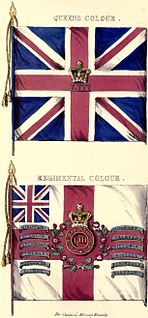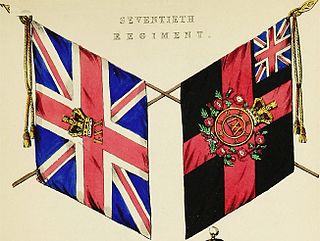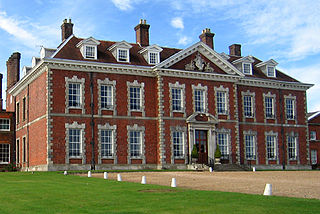Four regiments of the British Army have been numbered the 94th Regiment of Foot:
- 94th Regiment of Foot (1760), raised in 1760
- 94th Regiment of Foot (1780), raised in 1780
- 94th Regiment of Foot (1794), raised as the Scotch Brigade in 1794
- 94th Regiment of Foot (1823), raised in 1823
The 94th Regiment of Foot was a British Army regiment formed in Wales in January 1760. It saw action in North America later in the year during the French and Indian War and then took part, alongside the Royal Marines, in the Capture of Belle Île in April 1761 during the Seven Years' War, before sailing for the West Indies later in the year. In the West Indies it took part in the Invasion of Dominica in June 1761. The invasion was led by Lord Rollo who had been appointed by Lord Amherst to take command. The regiment went on to take part in the Invasion of Martinique in January 1762. It was disbanded in 1763.
The 94th Regiment of Foot was a British Army regiment formed in England in October 1780. It was placed on garrison duty in Jamaica in 1781 during the Anglo-Spanish War and then returned to England. Captain David Alexander Grant of the 94th Regiment married Marie-Charles-Joseph Le Mote de Longeuil in 1781 and their eldest son became the fifth Baron de Longueuil in 1841. The regiment was disbanded in England in 1783.
| This disambiguation page lists articles about military units and formations which are associated with the same title. If an internal link referred you to this page, you may wish to change the link to point directly to the intended article. |



